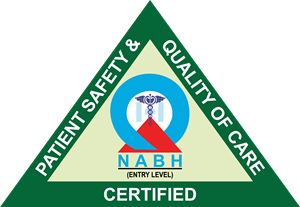Gallbladder Stones, also known as Gallstones, are a common medical condition affecting millions of people worldwide. These stones can lead to significant discomfort and complications if left untreated. In this blog, we’ll share insights about the causes, symptoms, and various treatment options available for gallbladder stones.
Jinkushal Cardiac Care & Superspeciality hospital
Gallbladder Stones
- March 18, 2024
- Posted by: Jinkushal Cardiac Care Hospital
- Category: Uncategorized

Understanding Gallbladder Stones: Causes, Symptoms, Treatment Options
What is Gallbladder and Gallstones?
The Gallbladder is a small pear shaped organ located beneath the liver, responsible for storing bile produced by the liver. Bile helps in the digestion of fats in the small intestine. Gallstones are solid particles that form within the gallbladder. These stones can vary in size, ranging from tiny grains to larger stones.
The gallstones cause different symptoms and complications such as stomach pain, indigestion, vomiting, nausea, etc.

Gallstones Come In Two Primary Types-
- Cholesterol GallStones: These are the most common and mainly consist of hardened cholesterol. They form due to imbalances in bile substances like cholesterol, bile salts, and bilirubin.
- Pigment GallStones: Less common, these stones are made of bilirubin, a liver waste product. Pigment stones are smaller and darker compared to cholesterol stones.
Causes of Gallbladder Stones-
Several factors contribute to the formation of gallstones, including:
- Excess Cholesterol: High levels of cholesterol in the bile can lead to the formation of cholesterol stones.
- Excess Bilirubin: When the liver produces too much bilirubin, it can contribute to the formation of pigment stones.
- Impaired Gallbladder Function: If the gallbladder does not empty properly or if it fails to contract efficiently, it can lead to the formation of gallstones.
- Obesity: Being overweight or obese increases the risk of developing gallstones.
- Rapid Weight Loss: Crash dieting or losing weight too quickly can disrupt the balance of bile salts and cholesterol in the gallbladder, leading to stone formation.
- Genetics: Family history of gallstones can increase the likelihood of developing them.
- Certain Medical Conditions: Conditions such as cirrhosis of the liver, diabetes, and certain blood disorders can increase the risk of gallstones.
Symptoms of Gallbladder Stones–
Gallstones may not always cause symptoms, but when they do, they can lead to intense discomfort and pain. Common symptoms of gallstones include:
- Sudden and severe pain in the upper abdomen, often radiating to the back or right shoulder blade.
- Nausea and vomiting.
- Jaundice (yellowing of the skin and eyes).
- Clay-colored stools.
- Fever and chills (indicating infection of the gallbladder).
How Can Gallbladder Stones Be Diagnosed?
Diagnosing gallbladder stones involves a combination of physical examination, blood tests, and imaging tests.
Physical Examination and Medical History: Your doctor will take the details of the symptoms you are experiencing and perform the physical examination. They might gently press on your abdomen to check for tenderness or swelling around the gallbladder.
Blood Tests: Your doctor may order blood tests to check for bilirubin levels, raised liver enzymes, or white blood cell count. These parameters can help confirm the inflammation or infection associated with gallstones.
Imaging Tests: If your doctor needs to confirm the diagnosis, they may order imaging procedures including:
- Abdominal Ultrasound: It is the most common ultrasound scan that uses sound waves to create images of gallbladder and bile ducts. This helps in detecting gallstones.
- HIDA scan: The hepatobiliary iminodiacetic acid (HIDA) scan uses a radioactive tracer injected into a vein. This helps track the flow of bile from the liver via the gallbladder and into the small intestine. This scan helps detect gallstone that blocks the flow.
- Abdominal CT scan: The CT scan of the abdomen creates the cross-sectional images of your abdomen to help identify complications like inflammation or infection.
MRCP (Magnetic Resonance Cholangio Pancreatography): The MRCP uses powerful magnets and radio waves to create detailed images of the biliary ducts and pancreas. It helps detect smaller gallstones present in the bile ducts.
Endoscopic Retrograde Cholangiopancreatography (ERCP): The ERCP is a specialized procedure that is recommended to confirm the blockage shown by other tests. It combines X-rays with a thin tube inserted through the mouth and throat to visualize the bile ducts and remove any gallstones.
It’s essential to seek medical attention if you experience any of these symptoms, as gallstones can lead to complications such as inflammation of the gallbladder (cholecystitis), pancreatitis, or blockage of the bile ducts.
Treatment Options for Gallbladder Stones-
Lifestyle Modifications: Making dietary changes can help prevent gallstone formation. You can prevent the risk by:
- Reducing the saturated fats intake
- Maintaining the cholesterol level
- Maintaining a healthy weight
Medications: Certain medications, such as bile acid pills, may be prescribed to dissolve cholesterol gallstones over time. However, this treatment is often slow and may not be effective for everyone.

Surgical Removal: The most common treatment for symptomatic gallstones is surgical removal of the gallbladder, known as cholecystectomy. This can be done through traditional open surgery or minimally invasive laparoscopic surgery, which offers quicker recovery times and less scarring.
Shock Wave Lithotripsy: In some cases, shock wave lithotripsy may be used to break up gallstones into smaller pieces, making them easier to pass..
Endoscopic Removal: For individuals who cannot undergo surgery, endoscopic retrograde cholangiopancreatography (ERCP) may be performed to remove gallstones from the bile ducts.
Gallstones can lead to discomfort and complications if untreated. Understanding their causes, symptoms, and treatments is crucial for prompt management. Consult a Gastrointestinal Surgeon if you suspect gallstones. Early intervention at Jinkushal Cardiac Care & Superspeciality Hospital can prevent complications and improve quality of life.

